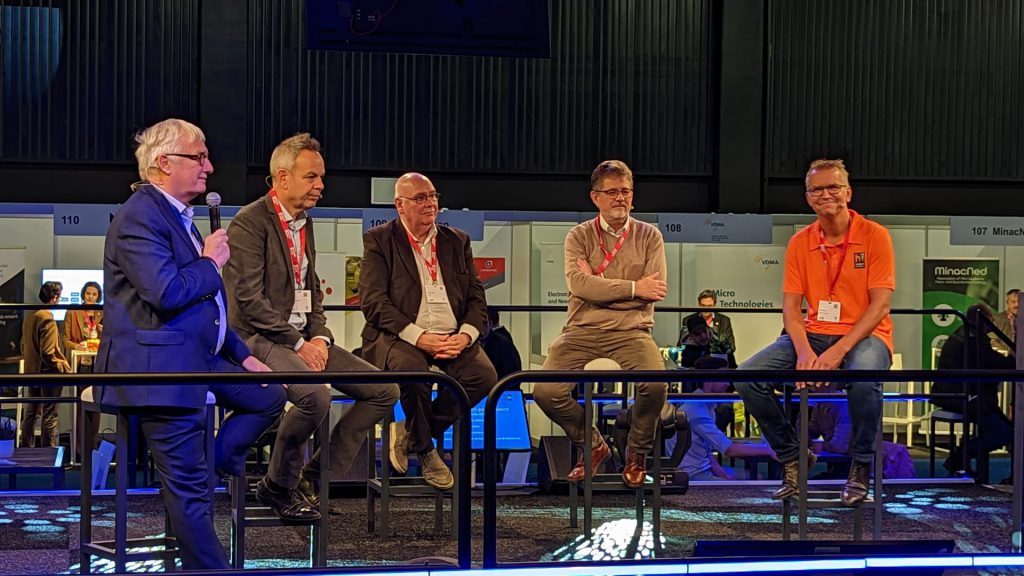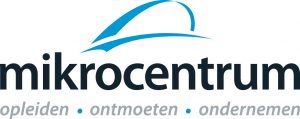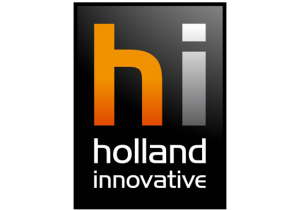KSC ensures the transfer of essential knowledge
Download the article as a PDF Dutch
Download the article as a PDF English
Competing as an ecosystem
The power of sharing
Unique selling points
Targeted knowledge transfer
Human Capital Agenda
Manufacturing Technology Conference
The purpose of the Knowledge Sharing Centre (KSC) is as clear as it is challenging: to share knowledge that normally lingers in the brain or notes of an individual technician with colleagues who might also benefit from it. Step by step within ASML in recent years – both out of necessity and because of the new possibilities – it has become good practice. Thanks to parties like Mikrocentrum, Holland Innovative, Innovox & Partners, and Thermo Fisher Scientific, the initiative is now getting a broader follow-up. The first public introduction was last week at the Precision Fair in Den Bosch.
Initiators Jelm Franse (ASML), Paul Nollen (Thermo Fisher Scientific) René van Ommeren (Innovox & Partners), Hans Meeske (Holland Innovative), Bert-Jan Woertman (Mikrocentrum) and Arno Sprengers (ASML) explained that everything around KSC revolves around trust. After all, according to them, trust is the main ingredient behind the success formulas that allow the companies to function individually, but especially what the value chain as a whole runs on. And that same trust is also essential for the KSC, says French. “We use the ‘trust equation’ for that. Trust is the result of capability times reliability times transparency divided by self-interest. In this way, you can look at the elements you can influence to get that trust as high as possible ultimately. What we have figured out by now is the enormous importance of the transparency factor: openness about what you expect and why you expect it, so that you also give others insight into the drivers of the semiconductor market that – apart from the short-cycle waves – make the trees grow into the sky in the longer term.”
Only with this kind of transparency can ASML keep the supply chain connected, says Franse. “Moreover, it gives the investors behind the chain the confidence to provide that needed working capital.” Broadening the KSC in this way is also in the interest of ASML itself, adds his colleague Arno Sprengers. He has been the center’s leader for the past eight years. “We as ASML have to be careful that the gap with c-developers and suppliers does not become too big. We are still growing tremendously fast, you have to take that into account, but it’s not always easy. Nurturing and sharing knowledge has become normal for us internally, but towards the outside world, it is sometimes still difficult. By broadening the KSC, we can take new steps.”

The knowledge sharing center circle.
Competing as an ecosystem

Photo during the precision: Names from left to right.
Rene van Ommeren – Innovox & Partners, Bert-Jan Woertman – Mikrocentrum, Jelm Franse – ASML, Paul Nollen – Thermo Fisher en Hans Meeske – Holland Innovative.
Bert-Jan Woertman sees the KSC as proof that it is better to compete as an ecosystem than as an individual company. “Exactly what we also always have in mind with Mikrocentrum. Of course, every company has its IP and its patents, you have to be careful with those, but there is also a lot you can share. By doing that smartly, the whole ecosystem benefits, and the value chain gets a little bit better every year.”
In terms of content, the Knowledge Sharing Centre is built on four pillars: first is the platform (KSC Platform), with physical and digital forms of knowledge exchange, one-on-one or in groups. Then there is the work on projects (KSC Projects), often based on successful practical examples at one of the participants. As a third pillar, there are the events (KSC Events) around the theory and practice of knowledge sharing: how do you actually do that? The last leg is about specific consulting for companies and individual participants (KSC Academy).
The power of sharing
Hans Meeske of Holland Innovative, one of the initiators of the broadening of KSC, is convinced that knowledge sharing is crucial for accelerating innovations. “The KSC was established for sharing knowledge of production techniques, but a logical next step is to expand to knowledge sharing in product development. Just as we are going to do in the NXTGEN HighTech Systems engineering initiative. There we are going to jointly identify the knowledge gaps around systems engineering and then start closing them from all levels of education. It’s putting the concept of lifelong learning into practice.”
Knowledge sharing is an underestimated phenomenon in the manufacturing industry, the initiators note. Today’s engineers do not always know how things are made, or they design things that are not manufacturable. Simply because they lack the knowledge that does exist elsewhere. The first focus of the KSC, therefore, lies in the knowledge of production techniques and manufacturability. Meeske: “If engineering and production are going to share more with each other, it will accelerate the learning process for everyone involved, it becomes easier to find each other, and ultimately we will get more business. We must do everything we can to learn more from each other; by getting to know each other’s generic knowledge without immediately throwing your intellectual property up for grabs, we can all grow. Because that’s the opportunity I see: getting smarter together in securing and distributing knowledge, both physical and digital.”
But shouldn’t good agreements be made about that knowledge sharing in advance? “Yes, we certainly should,” says Hans Meeske. “But let’s do that in parallel: establish agreements and share and accelerate out of trust. If you want to lay down everything on paper first, there is still too little trust, and you hinder the speed of sharing.” Paul Nollen of Thermo Fisher Scientific agrees: “The start of collaboration is often quite bureaucratic, but anyone who has ever had to deal with this knows that contracts are the minimum in collaboration and relationships are the maximum. We want to show that within the KSC as well – anyone who can help us in this development is welcome.”
Mutual success feeds trust, as René van Ommeren of Innovox & Partners says. He came into contact with the KSC in 2019. “Arno Sprengers and I immediately found each other in the common goals, also because I saw what a great thing Arno had built up over the years. And I also noticed immediately that ASML understood very well that more manufacturing companies should be linked to the KSC to increase its success.”
Unique selling points
ASML has agreed to remain involved in the organization of the KSC for at least the next three years, including financially, to enable the transition to a self-supporting knowledge-sharing platform. Van Ommeren: “That enables us to continue building on what has already been established at ASML in recent years. But at the same time, from now on, it is no longer purely ASML-related. So the main thing will be to get more companies to join this initiative because the more parties have confidence in it, the more successful it will become.”
And that trust, he adds, is sometimes not a given. “We feel there is definitely a need for a broader KSC, but people don’t know yet what will happen. Everyone naturally asks themselves first what there is to gain for themselves. It’s also logical that sometimes you are reluctant to share your unique selling points. I always have two answers: first, everyone can share interesting knowledge without immediately giving away all their secrets. Second, don’t underestimate what you can get in return. And not only because of the new knowledge you can gain, you are actively presenting yourself in a relevant environment, which immediately also improves your credibility.”
Targeted knowledge transfer
How important is a Knowledge Sharing Centre really in a time where everything can be found online? “Precisely that abundance of information is a risk”, Sprengers says. “You’re drowning in knowledge and won’t make any progress that way. Knowledge transfer must be done in a focused way, otherwise, it won’t work. Also, sometimes you need the knowledge you weren’t looking for. We can arrange for certain suppliers or developers in the value chain to come and explain techniques that are interesting to other engineers, to designers, or to students.”
Because of its connection to large manufacturing companies, the KSC started in Eindhoven, but its focus is now much broader. René van Ommeren: “I have said from the beginning: innovation is without borders. As a purely Brabant-focused organization, it doesn’t grow enough. We focus on the whole of the Netherlands, with the ambition to even go international.”
Jelm Franse likes to look to the typical Dutch schoolyard for the recipe of fruitful knowledge sharing. “The parents standing there at the gate get into conversations with each other without having drawn up an agenda for it, let alone agreed on it in advance. And yet those conversations often yield very interesting new knowledge. We with the KSC should also try to think like those young parents at the schoolyard.”
Want to know more about the Knowledge Sharing Centre? The website has all the information you need, including the requirements for becoming a member.
Human Capital Agenda
The KSC will work from the human capital agenda of the participating companies. The goal is an independent platform for knowledge sharing that is no longer pulled by a few large manufacturing companies but by three companies active in knowledge management: Mikrocentrum, Holland Innovative, and Innovox & Partners. From the joint customer insights, events will be organized, and projects initiated. Each new participating party can contribute to this.
Manufacturing Technology Conference
The renewed KSC will take the next step on June 20, 2023. At the first Manufacturing Technology Conference in Koningshof in Veldhoven, there will be room for a hundred companies that want to demonstrate their technology. More about the program can already be found on the website https://www.kscevents.nl. The organization of this day is in the hands of Mikrocentrum.









